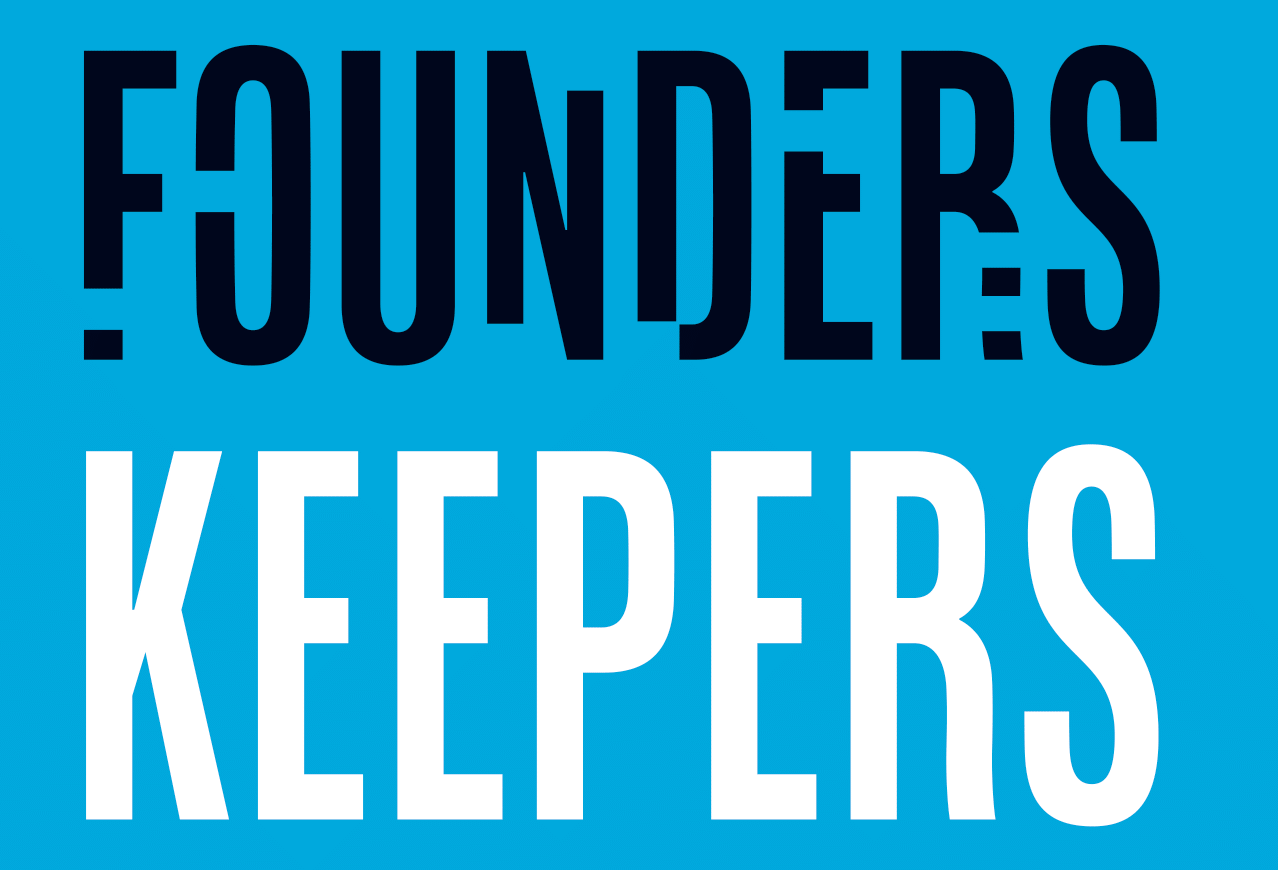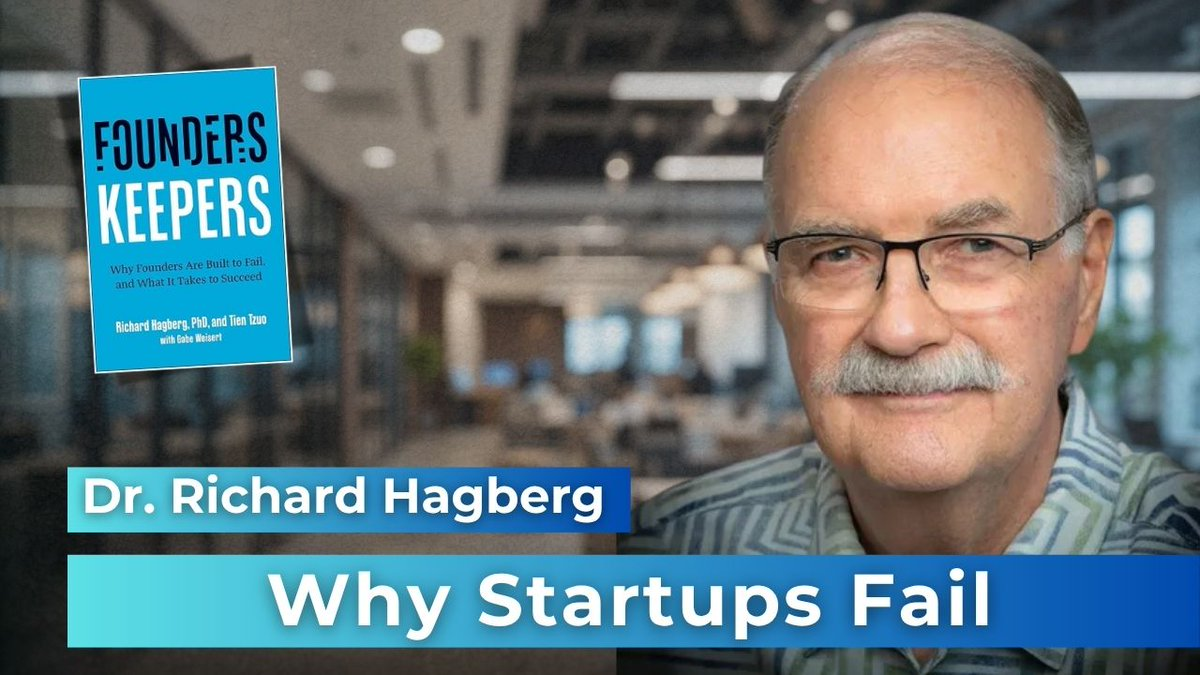Article
Scaling Beyond Genius: The Unseen Work of Building a Billion-Dollar Startup
January 30, 2025
Founders often carry a mythic aura, celebrated for their vision, charisma, and relentless drive. They are the bold risk-takers who disrupt industries, change lives, and will entire markets into existence. These narratives—as addictive as they are—often lead to an unfortunate misconception: that sheer genius is enough to scale a startup. It isn’t.
Vision alone might get you through the knife-fight phase of a startup’s life, but when it’s time to scale, your brilliance can become a bottleneck. Founders who cling to the illusion that they can power through scaling challenges with charisma and creativity often fail spectacularly. This blog is a wake-up call for founders, potential founders, failed founders, and investors alike: genius alone will not carry you to the finish line. What separates the startups that thrive from those that crumble is not brilliance but the ability to build enduring systems, structures, and processes.
Let’s dispel the myths and explore the unseen and often unglamorous work that founders need to master if they hope to turn a scrappy startup into a billion-dollar business.
Myth 1: Vision Is Everything
Most founders are natural Visionary Evangelists. They see around corners, spot market opportunities, and inspire teams with their bold ideas. Investors bet on these qualities, and for good reason: vision is what ignites the startup engine. But as the company grows, the same traits that propelled its early success can become liabilities.
Vision without structure leads to chaos. Founders can’t just "will" their companies to scale. At some point, the organization’s complexity will outstrip the founder’s ability to manage it. The lack of clear systems and processes creates bottlenecks, frustrates teams, and erodes trust.
Reality Check:
Vision is critical, but it’s not a substitute for operational rigor. Scaling requires founders to translate their big ideas into actionable, repeatable systems. Without this bridge between strategy and execution, even the most promising startups will stall.
Myth 2: The Founder’s Hustle Will Carry the Team
In the early days, startups thrive on heroic efforts. Founders wear multiple hats, pulling all-nighters and stepping in wherever there’s a gap. This scrappy hustle becomes a badge of honor, an identity. But as the team grows, this approach becomes unsustainable and even destructive.
Here’s the problem: many founders struggle to let go. They micromanage, make unilateral decisions, and refuse to delegate. Why? Because they’ve convinced themselves that no one else can match their passion or capability. This creates a toxic dynamic where the founder becomes the bottleneck, stalling progress and demoralizing their team.
Reality Check:
Hustle is not a scalable strategy. Founders must transition from being the hero to being the architect of systems that empower others to execute effectively. This means delegating, coaching, and trusting their team to own outcomes.
Myth 3: Startups Should Avoid Bureaucracy
The word “bureaucracy” sends chills down the spines of most founders. Isn’t the whole point of a startup to move fast and break things? Isn’t bureaucracy the enemy of innovation?
Not exactly. While startups should avoid unnecessary red tape, the absence of structure often leads to inefficiency and burnout. Teams waste time reinventing the wheel because there’s no documented process. Priorities shift on a whim, leaving employees confused and disengaged. Founders who reject all forms of process in the name of agility often end up with chaos instead of speed.
Reality Check:
Scaling startups need “just enough” process to provide clarity and direction. Think of processes as guardrails, not handcuffs. They should enable agility, not stifle it.
Myth 4: Scaling Is About Adding More Resources
When startups hit growing pains, the instinctive reaction is to throw more resources at the problem: hire more people, buy better tools, raise more money. While these are sometimes necessary, they’re rarely sufficient. Scaling isn’t just about doing more; it’s about doing better.
Consider this: doubling your team without clear systems in place will only amplify inefficiencies. Throwing money at problems without solving root causes leads to waste. Founders who equate scaling with “more” often find themselves with bloated organizations that are slow and unprofitable.
Reality Check:
Scaling is about improving efficiency and effectiveness. Before adding more resources, founders need to optimize their existing processes to handle greater complexity.
What Successful Founders Do Differently
So, what separates the founders who successfully scale their startups from those who don’t? Here are the key actions they take:
1. Re-engineer Inefficient Processes
Successful founders don’t just patch over inefficiencies; they dig deep to redesign broken systems. They prioritize scalability from the start, asking questions like: “Can this process handle 10x growth?” If the answer is no, they fix it.
2. Shift from Doer to Leader
Founders who scale learn to let go of day-to-day tasks and focus on strategic leadership. This means empowering their team to own decisions and outcomes while providing clear guidance and support.
3. Invest in People and Culture
Scaling isn’t just about systems; it’s also about people. Great founders invest in hiring top talent, developing their team’s capabilities, and creating a culture that aligns with their values and vision.
4. Embrace Feedback and Adaptation
Scaling is a messy process that requires constant iteration. Founders who thrive are those who actively seek feedback from their team, customers, and investors—and use it to refine their approach.
5. Build Operational Discipline
This is where many founders falter. Operational discipline means setting clear goals, tracking progress, and holding people accountable. It’s about creating a rhythm of execution that ensures the company delivers on its promises.
A Challenge to Founders
If you’re a founder, ask yourself:
Be honest. The answers to these questions will reveal whether you’re truly ready to scale your company or if you’re standing in your own way. For potential founders: Don’t romanticize the hustle. Building a startup requires more than just a big idea and hard work. Be prepared to master the unsexy, behind-the-scenes work of creating systems and structures that enable growth. For failed founders: Reflect on where things went wrong. Was it a lack of vision, or was it the inability to scale operations? Use those lessons to rebuild stronger. For investors: Stop glorifying the lone genius. Look for founders who are not just visionary but disciplined in execution. Invest in those who are willing to grow alongside their companies. The Takeaway Scaling is not a magical process that happens when you raise enough money or hire enough people. It’s a deliberate, disciplined effort to build the systems, structures, and processes that allow your company to grow sustainably. Vision might light the fire, but operational excellence keeps it burning. For founders willing to do the hard work, the rewards are immense. The ability to scale beyond genius is what separates the unicorns from the also-rans. The question is: are you ready to put in the work?
- Are you still trying to do everything yourself?
- Do your teams know their priorities, or are they constantly scrambling to figure out what matters most?
- Are your processes built to scale, or are you just winging it?
Be honest. The answers to these questions will reveal whether you’re truly ready to scale your company or if you’re standing in your own way. For potential founders: Don’t romanticize the hustle. Building a startup requires more than just a big idea and hard work. Be prepared to master the unsexy, behind-the-scenes work of creating systems and structures that enable growth. For failed founders: Reflect on where things went wrong. Was it a lack of vision, or was it the inability to scale operations? Use those lessons to rebuild stronger. For investors: Stop glorifying the lone genius. Look for founders who are not just visionary but disciplined in execution. Invest in those who are willing to grow alongside their companies. The Takeaway Scaling is not a magical process that happens when you raise enough money or hire enough people. It’s a deliberate, disciplined effort to build the systems, structures, and processes that allow your company to grow sustainably. Vision might light the fire, but operational excellence keeps it burning. For founders willing to do the hard work, the rewards are immense. The ability to scale beyond genius is what separates the unicorns from the also-rans. The question is: are you ready to put in the work?
share this
Related Articles
Related Articles

The Leadership Tightrope If you lead long enough, you start to realize something uncomfortable: everything that makes you effective also threatens to undo you. Your drive becomes impatience. Your confidence becomes stubbornness. Your empathy turns into guilt. The longer you lead, the more you realize that the job isn’t about choosing one trait over another — it’s about learning to carry both. That’s what maturity looks like in leadership. It’s not balance. It’s tension well managed. The False Comfort of Either/Or Most leaders crave clarity. We want rules. Playbooks. Certainty. Should I be tough or kind? Decisive or collaborative? Visionary or practical? The insecure part of the brain hates contradiction. It wants the “right answer.” But leadership lives in the messy middle — the place where both truths exist, and neither feels comfortable. The best leaders aren’t either/or thinkers. They’re both/and navigators. A Story from the Field I once coached a CEO who told me, “I’m torn between holding people accountable and being empathetic.” I said, “Why do you think those are opposites?” He paused, then laughed. “Because it’s easier that way.” Exactly. It’s easier to pick a lane than to learn how to drive in two at once. He eventually realized the real question wasn’t which side to choose, but when and how to lean into each. He became known as “the fairest tough boss in the building.” That’s the magic of integration — toughness with tenderness, vision with realism, clarity with compassion. Why Paradox Feels So Hard Contradictions feel like hypocrisy when you haven’t made peace with your own complexity. If you believe you have to be one consistent version of yourself — confident, decisive, inspiring — then every moment of doubt feels like fraud. But the truth is, great leaders are contradictory because humans are contradictory. You can be grounded and ambitious, humble and proud, certain and still learning. The work is not to eliminate the tension — it’s to get comfortable feeling it. The Psychology Behind It Our brains love binaries because they make the world simple. But complexity — holding opposites — is the mark of advanced thinking. Psychologists call this integrative complexity — the ability to see multiple perspectives and blend them into a coherent approach. It’s not compromise; it’s synthesis. It’s saying, “Both are true, and I can move between them without losing my integrity.” That’s where wisdom lives — in the movement, not the answer. Funny But True A client once told me, “I feel like half monk, half gladiator.” I said, “Congratulations. That means you’re leading.” Because that’s what the job demands: peace and fight, compassion and steel. If you can’t hold both, you end up overusing one until it breaks you. The Cost of One-Dimensional Leadership We’ve all worked for the “results-only” leader — brilliant, efficient, and emotionally tone-deaf. And the “people-first” leader — kind, loyal, and allergic to accountability. Both are exhausting. Both create lopsided cultures. When leaders pick a single identity — visionary, disciplinarian, nurturer, driver — they lose range. They become caricatures of their strengths. True greatness comes from emotional range, not purity. The Paradox Mindset Here’s how integrative leaders think differently: They value principles over preferences. They can be decisive without being defensive. They know empathy isn’t weakness and toughness isn’t cruelty. They trade perfection for adaptability. They’re the ones who can zoom in and out — from the numbers to the people, from the details to the meaning — without losing coherence. They’re not consistent in behavior. They’re consistent in values. That’s the difference. How to Practice Both/And Thinking Spot your overused strength. The strength that’s hurting you most is the one you lean on too much. If you’re decisive, try listening longer. If you’re compassionate, try being direct faster. Ask, “What’s the opposite quality trying to teach me?” Impatience teaches urgency; patience teaches perspective. You need both. Invite your opposite. Bring someone onto your team who balances your extremes — not a mirror, a counterweight. Hold paradox out loud. Tell your team, “This decision has tension in it — and that’s okay.” Modeling that normalizes complexity for everyone else. A Moment of Self-Honesty I’ve spent decades watching leaders chase “clarity” like it’s peace. But peace doesn’t come from eliminating tension. It comes from trusting yourself inside it. Once you accept that leadership will always feel contradictory, you stop fighting it — and start flowing with it. You don’t need to be the calmest, toughest, or most visionary person in the room. You just need to be the one who can stay whole while the world pulls you in opposite directions. Your Challenge This Week When you catch yourself thinking, “Should I be X or Y?” — stop. Ask instead, “How can I be both?” Then practice it in one small moment. Be kind and firm. Bold and humble. Fast and thoughtful. That’s where growth hides — in the discomfort between two truths. Final Word The best leaders aren’t balanced. They’re integrated. They’ve stopped trying to erase their contradictions and started using them as fuel. They’ve learned that leadership isn’t about certainty. It’s about capacity — the capacity to hold complexity without losing your center. That’s not chaos. That’s mastery
STAY UP TO DATE
GET PATH'S LATEST
Receive bi-weekly updates from the church, and get a heads up on upcoming events.
Contact Us











